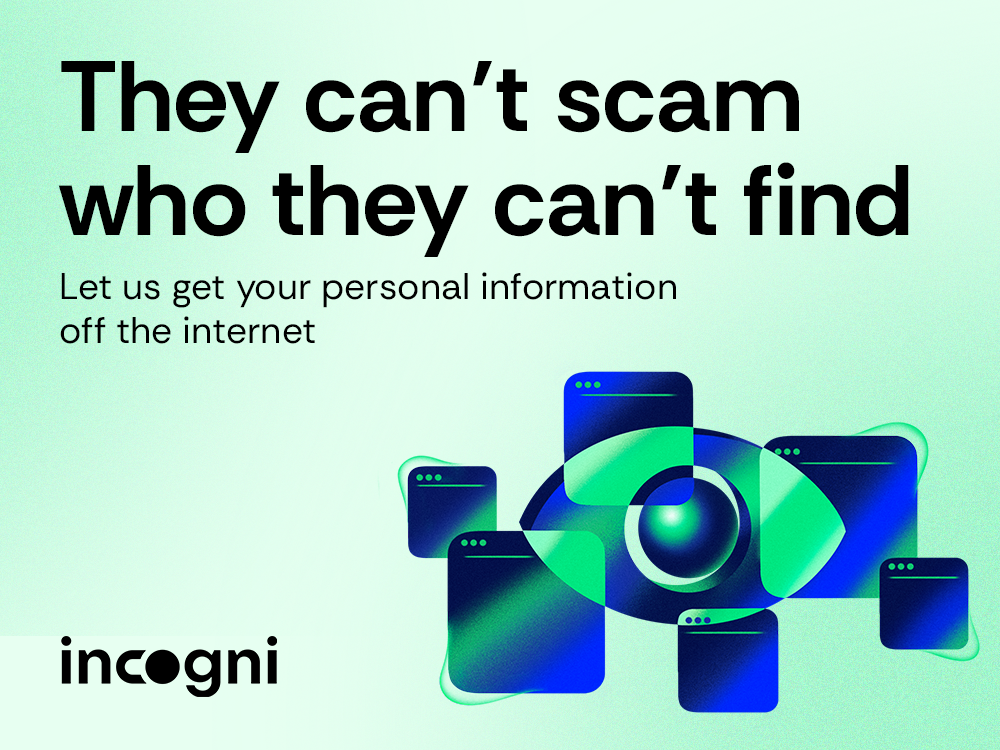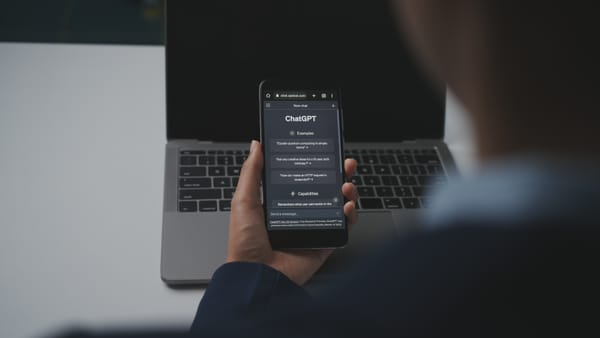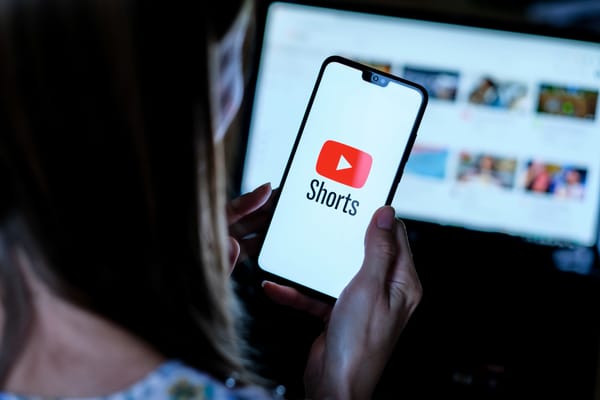What I learned about productivity this year
What I gave up, what I kept, and what's new. PLUS: How I'm using AI

Once a summer for the past few years, I've taken a break from the news cycle to share a little about how I use technology to do my job. (Here's last year, and the year before.) Readers often tell me they look forward to posts like these, and so in the spirit of giving you more of what you want, here's what I learned about productivity in the past year.
Just like last year, I'll offer a couple recommendations for software tools I've recently started using. (None of these recommendations are sponsored, incidentally.) But in an effort to offer a more complete picture of what it's like for me these days to get things done as a journalist and entrepreneur, I also want to talk about what I'm still doing, what I stopped doing, and why.
Let's get into it.
What I'm still doing
In my experience, most people use software tools only begrudgingly, and will go to great lengths to avoid ever having to learn a new one. For some percentage of tech enthusiasts, though, trying out new software is a hobby all unto itself.
I count myself among this pathological second group, and will regularly drop everything to try out a new to-do app for no productive reason at all. For that reason, I think, the strongest case I can make for you about which software tools are truly useful involve the ones that I have continued to use for more than a year.
With that in mind, I'm happy to say I'm still a more-or-less daily user of two apps I told you about last year.
Raycast, a launcher app I began using on my Mac, continues to make navigating my laptop effortless. I simply type ⌘-space and can instantly open an app, perform a calculation, reposition my windows, access my clipboard history, look up a word's definition, and dozens of other things. But my favorite use of Raycast is still asking quick questions of AI (a paid upgrade): without ever leaving the tab I'm on, I can look up a quick fact, jog my memory, or get more context. And yes, I double-check any fact it gives me before putting it in the newsletter. But the amount of time and energy I save in context-switching continues to make Raycast a cherished companion.
Raycast came to iOS this year, but in truth, I haven't found much use for it. The better news is that it is soon coming to Windows as well; you can sign up for the waitlist here.
Capacities, a personal knowledge management app, continues to be my home base for daily planning, journaling, and lightweight task management. The app offers extensive features for folks who like to have dedicated structures and metadata for keeping track of the books they read, the people they meet, and the places they travel. It also has integrated AI chat, integrations with Todoist and other third-party apps, and a growing library of plug-ins built by its community.
I've dabbled with those features, but none have stuck. What brings me back to Capacities is the value I find in taking a few minutes most mornings to write in my journal about work, life, and whatever else is on my mind. This clears my head and makes space for me to make a plan for the day, while also letting me noodle on ideas for the column and the podcast.
I still do some lightweight tagging of people, topics, and ideas. But I've also come to trust my memory more; it turns out that my mind returning to a subject over and over again is a much more useful signal to me than seeing that I keep tagging the same idea or subject all over again. Or rather, by the time I'm tagging the same idea over and over in Capacities, it has already occurred to me that it's something to write about. And how hard would have it been to find all those stories I so meticulously added and tagged, anyway?
What I stopped doing
Last year I talked about my experiments with Readwise, which I hoped would become a kind of AI librarian. The idea was that it would become a kind of next-generation Pocket, replacing the now-defunct read-it-later app with something more dynamic. It was especially useful at quickly parsing large PDFs, such as court decisions or NGO reports, allowing me to summarize and find relevant parts of the document much faster than I could do myself.
It didn't stick. Like Pocket, Readwise turned out to be less of a read-it-later app than a read-it-never app — a place to save articles, books and other media with the best of intentions, and then never to look at it ever again. Summarizing and navigating through PDFs is now something any chatbot will do for you, and for free.
Abandoning Readwise is part of an overall move I am making to collecting less stuff. In the past, it seemed obvious that slurping up every item of remote interest into a single database would eventually reap huge rewards for my intellect. And while I continue to investigate new approaches to that question — see below — on the whole I am trying to do less of it.
I experimented with Lazy; I spent the past six months keeping a journal of stories about AI in Tana. The best thing I can say about these experiences is that they made it modestly easier to jog my memory about recent events involving a certain company or topic, thanks to the work I had put into tagging them. But doing so required a lot of manual effort, and for only a modest reward.
How I'm using AI
Last month 404 Media's Jason Koebler wrote something that has haunted me ever since: "Where are the journalists who were formerly middling who are now pumping out incredible articles thanks to efficiencies granted by AI?" Koebler's question came as part of a broadside against feckless media executives betting that artificial intelligence will somehow save their businesses despite all current evidence to the contrary. But he also cast doubt on the idea that AI is transformative even at the individual level. I found myself agreeing with him.
Like Koebler, I believe that AI is no kind of business model for journalism; and that any efficiencies that individual reporters are seeing from it are relatively modest. There is nothing that AI now does for me that I could not do myself.
That said, there are things that AI does for me that I would now hate to do myself, and hope never to do again. There are also some things it can do better than I can, in most cases because it's simply much faster. Here are some of those things:
- Thinking models have gotten surprisingly good at identifying potential sources — potentially academic ones. When writing about Grok last month, I wanted to talk to someone who had studied relationships between people and chatbots. ChatGPT led me to Harvard's Center for Digital Thriving, and suggested someone to talk to, along with their email address. I wound up interviewing them for the piece. The fact that thinking models can quickly analyze the academic literature about any subject and identify prominent researchers on the subject, along with their email addresses and phone numbers, is beginning to save me a lot of Googling.
- Often when writing about a topic, I need examples to make my point. I find that thinking models are really good at "finding a time when." "Find examples of previous times that an AI company caused a backlash by cutting off access to a model with no warning," is one I used recently. ChatGPT and Gemini make easy work of this kind of question, and cite high-quality sources that I can actually use. It saves me time.
- Similarly, I'll use thinking models to "summarize reactions to" things. It used to be that I could simply look at Twitter to understand the conversation about the top tech stories of the day. But Twitter is dead now, and social media is fragmented. And so recently when I wanted to gauge early reaction to Perplexity's Comet browser, I asked ChatGPT to summarize early reviews. It quickly gave me a good range of perspectives.
- A lot of what I do at Platformer involves news analysis. Lately, I've been telling thinking models to read three or four stories, and then suggest connections between them, or unanswered questions that I ought to pursue. If you have a good human editor, they will often do this for you, and give you a head start as you set off reporting and writing. As my own editor, though, I appreciate the ability to use the model as a kind of backstop. I find this is true even and especially when its ideas are bad — as most millennials know by now, nothing spurs you to write quite like seeing something wrong on the internet.
- Each day before publishing, I ask one or two thinking models to analyze my column for spelling, grammatical, and factual errors. This is something that has gotten significantly better over the past year. Last August, bots routinely told me I had made mistakes that were not even in the text I submitted; they also could not access the web for fact-checking purposes. Now they can — and the emails I get from readers pointing out typos and other mistakes have notably declined. Of course, I also fact-check these columns myself, but everyone benefits from another set of eyes — even virtual ones.
For what it's worth, my most-used models are GPT-5 thinking (previously o3), and Gemini 2.5 Pro. GPT-5 is my daily workhorse, but I also think Gemini is underrated. (Did you know you can upload an audio file to it and it will create a very good transcription for you, and even clean up the filler words?) I find Claude less useful for the tasks above, but I do use it for personal stuff; it has the highest EQ of today's models. (See my ethics disclosure!)
And before anyone asks — I do not use AI to draft columns or even to draft outlines. I started a newsletter because I like to write!
What I'm trying
Two years ago, I wrote this:
Within some reasonable period of time, I expect that I will be able to talk to my Notion database as if it’s ChatGPT. If I could, I imagine I would talk to it all the time.
Much of journalism simply involves remembering relevant events from the past. An AI-powered link database has a perfect memory; all it’s missing is a usable chat interface. If it had one, it might be a perfect research assistant.
This feature actually shipped a few months later. My early experiments with it had not gone well. But after interviewing Notion CEO Ivan Zhao for Decoder this month, I gave it another shot. And I'm happy to say that Notion delivered exactly what I was looking for in 2023: the ability to talk to the giant database of links I have stored in it over the past five years, grounded in the actual links and article text I have saved.
I can give Notion a sprawling question like "how did the Cambridge Analytica case resolve" and get a good summary of regulatory actions across several years and countries. And by default, web search is off, meaning I know that its AI systems are drawing only on the vetted journalism that I have saved into my database.
This is a dream come true. I finally have a meaningful way to sift through millions of words of article text, ask follow-up questions, and get citations that I can use in my work. Notion may yet prove to be the AI librarian that Readwise never became.
One more thing I'm trying: I mentioned above that I continue to experiment with different ways to save material that might be useful later. Recently a Reddit post turned me on to Recall, which positions itself as a "self-organizing knowledge base." Currently available as a web and mobile app, Recall lets you save web pages, YouTube videos, PDFs, podcasts, Google Docs, and other materials into a single database that it then organizes on your behalf.
Recall is largely redundant to Notion. But I love its interface, its speed, and its overall user experience. Lately, the CEOs I cover have all started doing two- to three-hour podcast recordings. With Recall, I can save the podcast with one click, have it instantly generate a summarized transcript with timestamps, and let the app automatically connect it to other relevant articles and podcasts in my database. It performs similarly well with PDFs of books, which I rarely have the time to read in their entirety, but can now skim using Recall's detailed summaries and decide whether I want to dig in deeper.
Recall aims itself in part at students — it will also generate quizzes for you based on the material you save. And like basically every other productivity app today, it also has integrated AI chat, so you can ask questions about long documents and get grounded answers. I haven't been using Recall for long, but for the moment it is scratching my web-hoarding itch unlike anything else has quite been able to do to date.
In conclusion
If I've learned one bitter lesson about this stuff over the years, it's that the best productivity hack in the world is simply liking your job. If you enjoy what you do, you will find ways to do it, and in 2025 almost any software remotely suited to the purpose will be more than good enough. On a fundamental level, every single to-do list app is exactly the same.
But it's fun to try new things. And while I continue to waste countless hours and a fair bit of money doing so, I also feel like this pursuit keeps me connected to the state of the art. The Notion workspace I dreamed of two years ago is now here at my fingertips. The looming question, as ever, is what I will do with it.


On the podcast this week: Kevin and I explore what it means that we're in an AI bubble. Then, Reuters' Jeff Horwitz stops by to discuss his blockbuster story about Meta's policy to let its chatbot engage in "sensual" roleplay with children. And finally, I introduce Kevin to the wild world of "shock slop" — AI-generated songs meant to freak out your parents.
Also: thanks to Left of the Dial for naming Hard Fork one of its 100 best podcasts of all time!
Apple | Spotify | Stitcher | Amazon | Google | YouTube

Sponsored
Keep Your SSN Off The Dark Web

Every day, data brokers profit from your sensitive info—phone number, DOB, SSN—selling it to the highest bidder. What happens then? Best case: companies target you with ads. Worst case: scammers and identity thieves breach those brokers, leaving your data vulnerable or on the dark web. It's time you check out Incogni. It scrubs your personal data from the web, confronting the world’s data brokers on your behalf. And unlike other services, Incogni helps remove your sensitive information from all broker types, including those tricky People Search Sites.
Help protect yourself from identity theft, spam calls, and health insurers raising your rates. Plus, just for Platformer readers: Get 55% off Incogni using code PLATFORMER.

Governing
- Commerce Secretary Howard Lutnick said Intel must give the US government an equity stake in the company in return for funds from the CHIPS Act. (Annie Palmer and Chris Eudaily / CNBC)
- Lutnick is reportedly looking into the federal government taking equity stakes in other computer chip manufacturers that receive CHIPS Act funding. (Nandita Bose and Max A. Cherney / Reuters)
- Elon Musk is reportedly pausing his plans to start a political party after becoming reluctant to alienate powerful Republicans. (Brian Schwartz / Wall Street Journal)
- The acting NSA director reportedly tried to protect a top scientist from losing his security clearance. The scientist was one of 37 current and formal national security officials whose security clearances were revoked. (Julian E. Barnes / New York Times)
- US Customs and Border Protection (CBP) agents have searched nearly 15,000 devices over the last three months, a record high. (Matt Burgess / Wired)
- Medical-device maker Masimo accused CBP of unlawfully letting Apple reactivate a blood-oxygen tracking feature on Apple Watches that infringes patents, in a lawsuit. (Christopher Yasiejko / Bloomberg Law)
- Google will provide a suite of AI tools and cloud services to federal agencies for 47 cents each through 2026. (Julia Shapero / The Hill)
- Google’s new study says an average Gemini text prompt uses about five drops of water, but experts say the claims are misleading as the company left out key data points. (Justine Calma / The Verge)
- There is an urgent need to build AI that serves people instead of mimicking consciousness, Microsoft AI chief Mustafa Suleyman writes. (Mustafa Suleyman)
- Microsoft failed to disclose its use of employees based in China to work on highly sensitive Defense Department systems, a 2025 security plan submission shows. (Renee Dudley and Doris Burke / ProPublica)
- Microsoft has limited Chinese companies’ access to advance notifications about cybersecurity vulnerabilities, following its investigation into whether a leak caused a series of hacks in its SharePoint software. (Ryan Gallagher / Bloomberg)
- Apple’s fitness chief Jay Blahnik created a toxic work environment and was verbally abusive, manipulative and inappropriate, current and former employees say. (Tripp Mickle / New York Times)
- X is tentatively settling a class action lawsuit by former Twitter employees who allege they didn’t get their promised severance pay after they were laid off during Musk’s takeover. (Amanda Silberling / TechCrunch)
- French authorities opened an investigation into the death of a French streamer, known for extreme challenges that included violence and sleep deprivation, after he died in his sleep during a live broadcast. (Liv McMahon and Tom McArthur / BBC)

Made by Google
Lots of news at the company's big hardware event this week.
- Steph Curry is joining Google in a long-term partnership as a “performance advisor” for Google’s Health, Pixel, and Cloud products. (Jess Weatherbed / The Verge)
- The Pixel 10 Pro Fold is fully water- and dust- resistant. (Allison Johnson / The Verge)
- The Pixel 10 has a familiar design but with the addition of Qi2 charging and new color options. (Ben Schoon / 9to5Google)
- The Pixel 10 Pro series has the established design of previous models, but with storage upgrades, brighter displays, and bigger batteries. (Ben Schoon / 9to5Google)
- The Pixel 10 series has a new Tensor G5 chip manufactured by TSMC, which means its CPU is 34 percent faster. (Abner Li / 9to5Google)
- The Pixel 10 has a new Journal app and updates to Pixel Recorder, Screenshots, and Studio. (Abner Li / 9to5Google)
- Pixel 10 users can soon ask Google Photos to edit their pictures for them. (Sarah Perez / TechCrunch)
- Google is rapidly integrating its AI platform into its new devices. The new Magic Cue feature "lets the AI be more proactive by offering contextual suggestions in real time, across apps like Gmail, Calendar, Messages, Screenshots, and others." (Sarah Perez / TechCrunch)
- The new Pixel Watch 4 has a domed display, support for standalone satellite communication, and enhanced health and fitness tracking. (Aisha Malik / TechCrunch)
- Fitbit is getting a new AI personal health coach. (Aisha Malik / TechCrunch)
- The Pixel Buds 2A has an upgraded chip, Gemini access, a replaceable battery and active noise cancellation. (Victoria Song / The Verge)
- Gemini for Home, a new voice assistant for Google Home, is set to arrive later this year. Can Google pull off what Apple and Amazon have not? (Jennifer Pattison Tuohy / The Verge)

Industry
- SoftBank Group shares plunged as much as 9.2 percent as technology stocks in Asia declined following losses in the US. (Amala Balakrishner / CNBC)
- OpenAI generated $1 billion in revenue for the first time in July , CFO Sarah Friar said. (Samantha Subin / CNBC)
- DeepSeek’s V3.1 surpasses the R1 on key benchmarks, the company said, and represents its first step towards creating an AI agent. (Bloomberg)
- A sharing feature for Grok resulted in the publication of chat transcripts of hundreds of thousands of conversations, with some containing personal details. This has been true of every company that has such a feature, including OpenAI and Anthropic, for what it's worth. (Iain Martin and Emily Baker-White / Forbes)
- Meta has reportedly frozen hiring in its AI division after a months-long spending spree. The company says it's a logistical pause while it completes its reorganization. (Meghan Bobrowsky / Wall Street Journal)
- Google Docs will now let users generate an audio version of their documents using Gemini. (Emma Roth / The Verge)
- Google’s AI Mode is launching in 180 countries and territories in English. (Abner Li / 9to5Google)
- Microsoft is rolling out a new Copilot function on Excel that allows users to use natural language prompts in spreadsheets. (Sean Endicott / Windows Central)
- Microsoft is extending its partnership with the NFL to use Copilot and Azure AI to analyze game data in real-time. (Ali McCadden / CNBC)
- Amazon is reportedly planning to release a higher-end Fire tablet as soon as next year and will offer the Android operating system for the first time. (Greg Bensinger / Reuters)
- Intel’s stock rally has added about $24 billion in market value, raising its valuation to levels last seen in the dot-com era. (Ryan Vlastelica / Bloomberg)
- A look at how Oracle turned its cloud infrastructure business around with deals with OpenAI and Nvidia, making cofounder and chairman Larry Ellison the second-richest person in the world. (Brody Ford / Bloomberg)
- Anthropic is offering a new subscription that will incorporate Claude Code into Claude for Enterprise. (Russell Brandom / TechCrunch)
- Anthropic is reportedly nearing a deal to raise as much as $10 billion in a new funding round. (Ryan Gould and Shirin Ghaffary / Bloomberg)
- Apple TV+ is upping its price by 30 percent and will now cost $12.99 per month in the US. (Todd Spangler / Variety)
- Character.AI is reportedly in talks to sell or raise a new funding round at a valuation of more than $1 billion, a year after Google hired its founders as part of a $2.7 billion deal. (Natasha Mascarenhas, Kalley Huang and Valida Pau / The Information)
- A look at how Stability AI, once a startup near collapse, is making inroads in Hollywood. (Zoë Schiffer / Wired)
- Runway AI’s film festival selections at this year’s AI Film Festival did little to convince this author of AI’s potential in art. (John Semley / Wired)
- Two former Harvard students are launching a pair of AI smart glasses that listen to, record and transcribe conversations in real time. (Lorenzo Franceschi-Bicchierai and Rebecca Bellan / TechCrunch)
- The Chinese startup behind AI project Manus’s autonomous AI agents said its annual revenue run rate is forecasted at $90 million. (Bloomberg)

Those good posts
For more good posts every day, follow Casey’s Instagram stories.

(Link)

(Link)

(Link)

Talk to us
Send us tips, comments, questions, and productivity hacks: casey@platformer.news. Read our ethics policy here.





